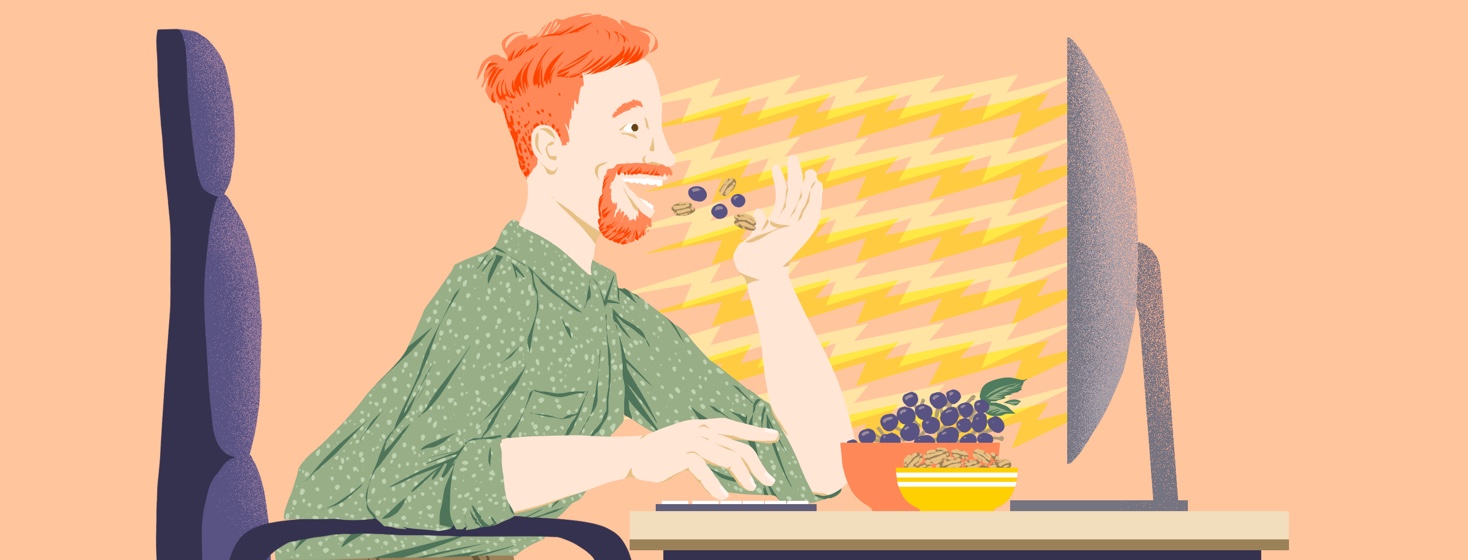Eating to Improve Energy with IBS
Many of our patients notice they struggle with low energy. While it’s very common to get tired, lethargic, and even irritable in the afternoon – we oftentimes see in IBS patients notice it even more! When we get down to it, we notice – it's often because of a lack of good quality nutrition due to dietary restrictions or feeling like they don't know how to snack anymore! We get it! It can be hard. Today we're going to talk about how different macronutrients impact your energy levels, and how you can get enough energy eating for IBS! Food is energy.
Nutrition is important for improving energy levels throughout the day because food is energy. It is the fuel that we put in our tanks, but not all food gives us the same amount of energy, so we also need to consider the type of food we put in our bodies. Think of it like a car – there are different types of gasoline. Some foods keep us full, satisfied and energized longer than others.
Nutrition to help improve energy
Refined carbohydrates
Refined carbohydrates such as potato chips or a gluten-free donut don’t have a lot of “staying power.” They are mostly carbohydrates, which are a quick-burning type of fuel in our bodies. These foods don’t generally have a lot of fiber, so they enter our bloodstream quite quickly. This can lead to a bit of a rollercoaster effect in which we get a burst of energy, but a sudden crash soon after.
Complex carbohydrates
Complex carbohydrates are still carb-rich foods but contain more fiber and are less processed. Oatmeal, bananas, and quinoa are great examples. These foods also deliver fairly quick energy but keep us full and energized longer without a huge crash.
Protein
Protein helps us to stabilize our blood sugars (and therefore our energy). We do get some energy from protein foods and this energy is sustained and gradual – meaning it can often carry us through for a few hours before we start to notice our energy fading again.
Healthy fats
Healthy fats are similar to protein, fill us up and help to stabilize our energy for the long-term. In fact, fat itself doesn’t actually raise our blood sugars at all! Keep in mind, we don’t generally eat fat by itself - most of us don’t eat a spoonful of oil for example. However, pairing foods with more protein or healthy fats with other carb-rich foods is a great way to create a longer-lasting energy source! For example, try having 1 oz of hard cheese (protein and fat) with some seed crackers (complex carbohydrates). Or pair some walnuts (protein and fat) with grapes (complex carbohydrates). This will take you much further than just the carbohydrates on their own.
Snacks to improve energy levels
As humans, our bodies tend to need a pick-me-up every few hours. Because of this, I recommend having snacks between meals. This helps to ensure you don't have too many FODMAP's at a meal when you're starving and gives your digestive tract smaller portions to work on. I oftentimes find people get so busy at work, they don’t always take a break to grab a snack and then they end up STARVING at dinner!
Low FODMAP snack ideas
I recommend keeping some of your favorite low FODMAP snacks on hand at work – either in your desk or in the office fridge. Here are some of my favorite combinations:
- Banana and peanut butter
- Lactose-free yogurt with a half cup of blueberries or strawberries
- Small can of tuna with gluten-free crackers
- 1 to 2 ounces of hard cheese with rice cakes
If you feel you need additional support with improving energy levels, you may benefit from seeing a dietitian who can help personalize recommendations to you!

Join the conversation